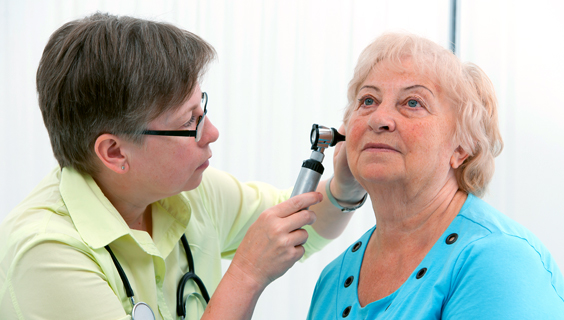Aging is a natural and inevitable part of life that brings about changes in various aspects of health. As we grow older, our bodies and minds undergo transformations that may require different types of care and attention. Understanding these unique health needs can significantly contribute to a fulfilling, active, and healthy life during the senior years. This guide will specifically designed 25 essential health tips for seniors, covering diverse topics, from diet and exercise to mental health and preventive care. These recommendations will not only help in addressing the common health care for seniors but also in promoting overall well-being and improving quality of life.
1. Importance of Regular Health Checkups
Health checkups become essential Tip for Seniors health. They help identify potential health issues before they become severe problems. Regular screenings and medical tests can detect conditions like hypertension, diabetes, heart disease, or cancer early, improving the chances for effective treatment and better management.
2. Maintaining a Balanced and Nutritious Diet

Aging brings changes in metabolism and dietary requirements. Maintaining a balanced diet rich in fruits, vegetables, lean proteins, and whole grains can help manage weight, maintain heart health, and prevent or control chronic diseases. It’s also crucial to monitor vitamin and mineral intake, such as Vitamin D and Calcium, essential for bone health.
3. The Value of Regular Physical Activity
Regular physical activity is another health care for seniors that helps to maintain muscle mass, flexibility, balance, and bone health—all critical aspects of an aging body. Exercise benefits cardiovascular health, aids in weight control, and improves overall energy levels. Suitable activities for seniors include walking, swimming, yoga, and light weightlifting, tailored to individual abilities and preferences.
4. Prioritizing Mental Fitness and Brain Health
The mind needs exercise just as much as the body. Regular mental stimulation through activities such as reading, puzzles, learning new skills, or even engaging in social interactions can help maintain cognitive function. It’s also vital to keep a lookout for signs of cognitive decline or mental health disorders like Alzheimer’s or depression.
5. Hydration
Staying well-hydrated is a simple yet effective way to maintain good health for seniors. Water aids digestion, keeps the skin healthy, helps regulate body temperature, and is vital for overall body function. As we age, our sense of thirst may diminish, making it essential to consciously keep up water intake.
6. Understanding the Importance of Adequate Sleep
A good night’s sleep does wonders for overall health. It aids in cell repair, keeps the immune system strong, and even contributes to heart health. Maintaining regular sleep patterns, creating a restful environment, and managing chronic pain or discomfort can all lead to better sleep quality.
7. Stress Management Techniques for Seniors
Stress isn’t just a mental or emotional issue—it can lead to physical health problems such as heart disease, high blood pressure, and other illnesses. Techniques like meditation, deep breathing, gentle yoga, or simple leisure activities can help manage stress and promote health care for seniors.
8. Regular Vision Checkups
Eye health can deteriorate with age, leading to conditions like glaucoma, cataracts, or age-related macular degeneration. Regular vision checkups allow for early detection and treatment of these conditions, helping to maintain good vision and prevent significant vision loss.
9. Hearing Tests

Just like vision, hearing often declines with age. Regular hearing tests help detect problems early, and modern interventions such as hearing aids or surgical procedures can significantly improve the quality of life.
10. Staying Socially Active to Boost Emotional Well-being
Social interactions contribute to emotional well-being and cognitive health. Activities like volunteering, joining clubs or groups, or simply maintaining close relationships with friends and family can help seniors stay socially active and mentally stimulated.
11. Keeping Up with Vaccinations
Vaccinations are not just for children—they’re important for seniors too. Vaccines for flu, pneumonia, shingles, and COVID-19, among others, can prevent serious illnesses that older adults are more susceptible to.
12. Regular Medication Management and Review
As we age, medication usage often increases, making it critical to manage and review them regularly. This practice helps avoid drug interactions, monitor side effects, and ensure the efficacy of the medications.
13. Importance of Regular Dental Checkups
Oral health is directly linked to overall health. Regular dental checkups can prevent tooth decay, gum disease, oral cancer, and even check for signs of other diseases that may manifest symptoms in the oral cavity.
14. Skincare and Sun Protection
As the skin ages, it becomes thinner, dryer, and less elastic, making it more susceptible to injuries, diseases, and sun damage. Regular skincare, including moisturizing and sun protection, can help maintain skin health and prevent skin cancer.
15. Fall Prevention and Safety at Home
Falls can lead to serious injuries in seniors. Safety measures at home like removing tripping hazards, using non-slip mats, and installing handrails can help prevent falls. Regular physical activity can also strengthen muscles and improve balance, further aiding in fall prevention.
16. Staying Informed about Medical History
Knowing and understanding your medical history and family’s can help your healthcare provider make informed decisions about your health risk factors and necessary preventive screenings.
17. Importance of Regular Bone Health Checkups
Bone density decreases as we age, leading to conditions like osteoporosis. Regular bone health checkups can detect these conditions early, and a combination of a healthy diet, regular exercise, and appropriate medications can help manage them effectively.
18. Understanding and Managing Chronic Conditions
Many seniors live with one or more chronic conditions like arthritis, diabetes, or heart disease. Understanding these conditions, their implications, and how to manage them is key to maintaining a high quality of life.
19. Smoking Cessation and Limiting Alcohol Consumption
Both smoking and excessive alcohol consumption can lead to numerous health problems. Quitting smoking and moderating alcohol intake is a great way to maintain good health for seniors. Because it helps to reduce the risk of heart disease, lung disease, certain cancers, and other health issues.
20. The Importance of Mental Health and Seeking Help
Mental health is as crucial as physical health. It’s important for seniors to recognize symptoms of mental health issues like depression or anxiety and seek help. Therapies, medications, and support groups can all help manage mental health conditions.
21. Regular Cardiovascular Checkups
Regular cardiovascular checkups can help detect heart disease early and allow for preventative measures to be put in place.
22. Maintaining a Healthy Weight
Maintaining a healthy weight reduces the risk of various diseases including heart diseases, diabetes, and arthritis.
23. Prioritizing Brain-Boosting Activities
Engaging in puzzles, reading, writing, or other stimulating activities can help keep the brain sharp and potentially ward off cognitive decline.
24. Balancing Alone Time and Social Activity
While alone time can be beneficial, it’s also crucial tip for seniors health to have regular social interactions to maintain emotional balance.

25. Monitoring Blood Pressure Regularly
Keeping a close eye on blood pressure levels can prevent complications like stroke and heart disease. Regular monitoring can help ensure that any changes in blood pressure are addressed promptly.
Conclusion:
Health tips for seniors, it’s essential to recognize that aging is a natural process that brings its unique set of health concerns. However, living a healthy lifestyle that incorporates regular physical activity, a balanced diet, adequate sleep, and active social engagement can significantly mitigate many age-related health risks.
Frequent health check-ups, timely medication, and keeping up with necessary vaccinations are vital parts of preventive health care for seniors. Taking proactive steps like regular bone health and cardiovascular check-ups, weight management, brain stimulation activities, and blood pressure monitoring can help catch potential health issues early and manage them effectively.
Also, it’s crucial not to overlook mental health. Seeking help when needed, managing stress, and maintaining a positive outlook can significantly enhance the quality of life.
Ultimately, embracing these health tips can lead to successful aging, allowing seniors to enjoy their golden years with vitality and well-being. Remember, it’s never too late to start making healthier choices. Each step taken towards a healthier lifestyle is a step towards a happier, more fulfilling life.


